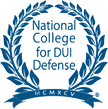Violent Crimes in Washington: What to Know
Seattle’s violent crime rate is on the rise, especially offenses like assault and robbery. As a result, prosecutors are cracking down hard on people who have been accused of violent crimes in Washington. It’s essential to understand your charges and the potential penalties for a violent crime conviction.
Crimes Involving Violence
According to Washington Revised Code Section 9.94A.030, a violent offense is any Class A felony, including manslaughter, rape, kidnapping, arson, assault, robbery, extortion, homicide, and others.
These are all felonies, with most of them being at the highest levels of punishment in Washington.
Violent Crime Penalties in WA
The penalty for the violent crime you may be charged with depends on its felony level:
- Class A Felony – Up to life in prison and fines of up to $50,000.
- Class B Felony – Up to 10 years in prison and up to $20,000 in fines.
- Class C Felony – Up to five years in prison and up to $10,000 in fines.
Effects of a Violent Conviction
The negative consequences being convicted of a violent crime conviction can be far-reaching and affect many aspects of your life.
Those with violent criminal convictions on their record face:
- Difficulty Finding Employment. Many employers are hesitant to hire people with criminal records, especially those who have been convicted of violent crimes. This can make it difficult to find a job that pays a living wage and can lead to financial hardship.
- Loss of Housing. Some landlords will not rent to people with criminal records. You may be evicted from your current housing if you are convicted of a violent crime. This can lead to homelessness or instability.
- Difficulty Obtaining Government Benefits. If you have been convicted of a violent crime, you may be ineligible for certain government benefits, such as food stamps or public housing.
- Immigration Consequences. If you are not a U.S. citizen, a conviction for a violent crime could lead to deportation, exclusion from the United States, and loss of naturalization.
- Difficulty Traveling. You may have trouble obtaining a passport or visa if convicted of a violent crime. You may also be denied entry into other countries.
- Limited Educational Opportunities. You may be denied admission to specific colleges or universities if you have been convicted of a violent crime.
- Loss of Voting and Firearm Rights. A conviction for a violent crime could cause you to lose your right to vote and right to possess a gun.
- Loss of Child Custody. If you have children, a conviction for a violent crime could make you lose custody of your children, especially if your offense involved domestic violence.
In addition to these specific consequences, a violent conviction can also make it difficult to reintegrate into society and lead a normal life. You may face stigma and discrimination from others.
Violent Crime – Aggravating Factors
Aggravating factors are circumstances that make a crime more serious and can lead to a harsher sentence. In cases involving violence, aggravating factors include:
- The severity of the victim’s injuries
- The use of a weapon
- The victim’s vulnerability
- Cruel or heinous motive
- Your prior criminal history
- Impact of the crime on the community
- Lack of remorse
The presence of aggravating factors can increase the severity of the sentence.
Dealing with Violent Criminal Charges in WA
After an arrest for a violent crime in Washington State, the following will typically occur:
Booking in Violent Crimes
At the police station, you will likely be booked. This involves fingerprinting, photographing, and taking your personal information. You will also be read your Miranda rights, which inform you of your right to remain silent, have an attorney present during questioning, and stop questioning at any time.
Bail Hearings for Violent Acts
You will appear before a judge for a bail hearing. The judge will determine whether to set bail and, if so, the bail amount. Bail is money deposited with the court to ensure you will appear for your court hearings. If you cannot afford bail, you may remain in jail until your trial.
Initial Appearance/Arraignment
Within 48 hours of your arrest, you will have an initial appearance in court. The judge will read the charges against you at this hearing and ask you to enter a plea. You can enter a plea of not guilty or guilty. If you plead not guilty, your case will be set for trial and new court dates will be set.
Plea Negotiation in Violent Cases
Your criminal defense attorney will review the case thoroughly and negotiate with the prosecutor to try to reach an agreement that will get your case dismissed or reduce your charges and minimize your penalties. If successful, you may decide to accept a plea deal.
Pre-Trial Discovery
The prosecution and defense will exchange evidence and information during this period. Discovery may include witness statements, videos, 911 calls, police reports, and physical evidence.
Trial and Sentencing
If your case proceeds to trial, it will be held before a judge or jury. The prosecution will present its case first, followed by the defense. The jury will then decide whether you are guilty or not guilty. If you are found guilty, you will be sentenced. The sentence may include time in custody, probation, fines, treatment, and restitution to the victim.
The specific steps involved in your case will vary depending on the charges against you and the circumstances of your arrest.
Defending Against Violent Criminal Charges
Defending against violent criminal charges can be a complex and challenging process. A lot will depend on the circumstances, and it is important to have an experienced criminal defense attorney representing you.
Proper representation will ensure that your rights are protected and that you will have the best possible chance of a favorable outcome.
Here are some defenses that may be available if you’re accused of a violent crime:
- Self-defense
- Defense of others
- Duress or coercion
- Mistaken identity
- Lack of intent
- General denial
- Lack of evidence






